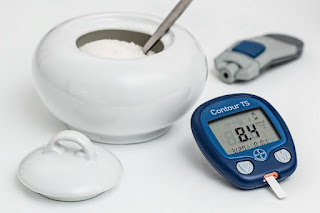Causes, Symptoms and Prevention of Diabetes
Diabetes mellitus often referred as Diabetes in customary and it is a group of metabolic diseases in which the person has high blood sugar (blood glucose), either because insulin Production is complement, or because the body’s cells do not respond properly to insulin, or both.
Metabolism can be describe as, the way our bodies use digested food for energy and growth. Most of what we eat is broken down into glucose (sugar). Glucose is a form of sugar in the blood which is the principal energy source of our bodies.
After having meal it’s start to digest and the glucose makes its way into our bloodstream. Our body cells use the glucose for growth and energy. However, glucose cannot enter our cells without insulin being present – insulin makes it possible for our body cells to take in the glucose. Insulin is a hormone and it is produced by the pancreas. After our meals, the pancreas automatically releases a sufficient quantity of insulin to move the glucose present in our blood into the cells, as soon as glucose enters the cells blood-glucose levels drop.
A person with diabetes has a condition in which the quantity of glucose in the blood is too excessive (hyperglycemia). This is because the body does not produce sufficient insulin, produces no insulin, or has cells that do not respond properly to the insulin the pancreas produces. As a result too much glucose building up in the blood. This high blood glucose eventually passes out of the body in urine. Hence, even though the blood has plenty of glucose, the cells are not getting it for their essential energy and growth requirements.
Most of time the effects of diabetes include long–term damage, dysfunction and failure of various organs.
Type 2 Diabetes Mellitus – In here the body does not produce sufficient insulin for proper function or the cells in the body do not react to insulin (insulin resistance).
Gestational Diabetes – This type affects only for the females, during their pregnancy. Some women have too much of sugar(glucose) levels in their blood, and their bodies are unable to produce enough insulin to transport all of the glucose into their cells, resulting rising levels of blood sugar more and more.
How to determine you have Diabetes or Not
Doctors use three types of tests
1) The A1C test
– at least 6.5% means diabetes
– between 5.7% and 5.99% means prediabetes
– less than 5.7% means normal
2) The FPG (fasting plasma glucose) test
– at least 126 mg/dl means diabetes
– between 100 mg/dl and 125.99 mg/dl means prediabetes
– less than 100 mg/dl means normal
3) The OGTT (oral glucose tolerance test)
– at least 200 mg/dl means diabetes
– between 140 and 199.9 mg/dl means prediabetes
– less than 140 mg/dl means normal
All types of diabetes must treatable. Diabetes type 1 do not have the exact cure for the life time. Type 2 diabetes generally lasts a lifetime, but, some people who have advertency are managed to get rid of their symptoms without medication, through a combination of exercise, and diet and regulating the body weight
Type 1 diabetes Patients are treated with regular insulin injections, In addition including special diet, and exercise or yoga. Patients with Type 2 diabetes are usually treated with tablets, exercise and a special diet, but sometimes insulin injections may be also required. If diabetes is not rightly controlled the patient has a significantly higher risk of developing complications.
Possible complications that can be caused by diabetes.
- Heart problems
- Eye complications
- Mental health
- Eye complications
- Hearing loss
- Foot complications
- Skin complications
- Hypertension
- Take much longer to Healing of wounds
- Gastroparesis
- Gum disease
Symptoms of Diabetes.
Most of people may have diabetes and be completely unaware. The main reason for this is that the symptoms, when seen on their own, seem harmless and do not care about that. Therefore, the earlier diabetes is diagnosed the greater the chances are that serious complications, which can result from having diabetes, can be avoided.
- Frequent urination
- Disproportionate thirst
- Intense hunger
- Weight gain
- Unusual weight loss
- Blurred vision
- Itchy skin
- don’t heal Cuts and bruises properly or quickly
- Itchy skin
- Gums are swollen and red – Gums pull away from teeth
- Sexual dysfunction among men







